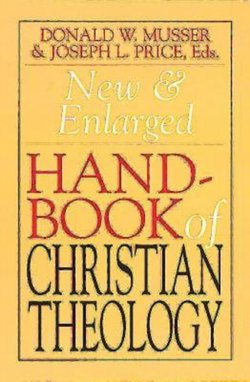Читать книгу New & Enlarged Handbook of Christian Theology - Donald W. Musser - Страница 18
На сайте Литреса книга снята с продажи.
ОглавлениеAPOCALYPTIC THEOLOGY
Eschatology treats Christian ideas about the future of humanity. Early Christians considered two types of eschatology. One, prophetic eschatology, emphasized the work of God through the faithful under the banners of peace and justice to transform societies and nations. A second, apocalyptic eschatology, focused on the action of God apart from human efforts to evoke a spiritual transformation beyond this world.
Early Christianity was strongly apocalyptic; in particular, Paul emphasized the intervention of God in human history, especially at its end. As history moved forward, and the divine transformation of life did not occur, the church moved toward a more prophetic eschatology.
Recent cultural crises, however, have nurtured a renewal of apocalyptic theologies, especially among Protestant evangelical and fundamentalist theologians in the Americas and the United Kingdom. Elements of apocalyptic theology are also present in many popular notions of the end of history.
In many respects all Christian theology is generally “apocalyptic” in the sense that the fulfillment of history depends upon the actions of God. Contemporary apocalyptic theology, however, expresses belief that signs point to a series of events that will bring history to a dramatic climax in which God triumphs over evil (Satan, death, and sin) to usher in a millennium of peace.
Apocalyptic theology affirms the essential principles of the theology of history promoted by Charles Nelson Darby and Lewis Sperry Chafer. Its basic tenets are included in the notes of the Scofield Reference Bible and the Ryrie Study Bible. Its intellectual centers abide at Dallas Theology Seminary and Liberty University (Lynchburg, Virginia). Popular versions of apocalyptic theology appear in Hal Lindsay’s The Late Great Planet Earth (25 million copies sold) and the “Left Behind” series of novels by Tim LaHaye and Jerry Jenkins (sales of 50 million copies).
Key assumptions of apocalyptic theology in the twenty-first century include at least the following: (1) global history has been scripted into seven periods; (2) the current period, the seventh and final one, will soon draw to a close; (3) seminal biblical texts (especially Ezekiel 38–39, Zechariah 9–14, Daniel, I Thess. 4:13-18 and 5:1-11, and Revelation) foretell specific historical events that immediately precede “The End”; and (4) certain signs (intensification of natural catastrophes, social disruptions, political and economical alliances, and the reestablishment of the state of Israel) portend “The End.”
Apocalyptic theologians are hopelessly pessimistic about the human present but are vibrantly optimistic about the complete victory of the sovereign God who will suddenly intervene in human history and who will triumph over the forces of evil.
Once ignored as a fringe theology, apocalyptic theology has become one of the mainstreams of popular Anglo-American eschatological thought since the 1970s. This fact has had important political, social, and ecclesiastical implications. (1) Apocalyptic theologians believe that the Bible predicted that Israel would once again become a sovereign state and that events in Israel would present “signs” of “The End.” This “Christian Zionism” has resulted in fervent political support on religious grounds for the state of Israel. (2) Coupled with a view that a “Christian America” has a potentially positive role in God’s end-time activities, apocalyptic theologians have often supported political activity (e.g., the Moral Majority, religious right) that is “pro Christian.” Some support a “christianized” America (a theocratic notion associated with the “dominion theology” of Rousas John Rushdoony). Other proponents of apocalyptic theology remain passive with regard to political activity. (3) Apocalyptic theology believes that events leading to “The End” will be attended by armed violence. As a result, apocalyptic theology has not been vocal in Christian peace movements. (4) Neither has apocalyptic theology been supportive of Christian advocacy for environmental issues. If “The End” is at hand, the conservation of nature hardly seems relevant.
DONALD W. MUSSER
Bibliography
National Liberty Journal, Jerry Falwell, editor.
Donald Wagner, “Evangelicals and Israel: Theological Roots of a Political Alliance,” The Christian Century (November 4, 1998): 1020-26.
“The Bible and the Apocalypse,” Time (July 2, 2002): 40-53.
Cross-Reference: Dispensationalism, Eschatology, Evangelicalism, Fundamentalism, Peace, Violence.
